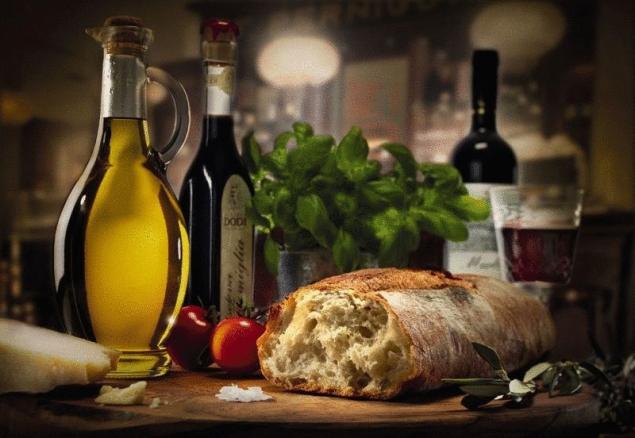468
As mechanization ruined the taste of olive oil

Modern restaurant culture is hard to imagine without olive oil. After a hard week of white Americans flock to enjoy the restaurant. This is a sweet deal, razniewski in the cool jets of air conditioner, thoughtfully poke on the menu, and then waiting for the order, with pleasure to dip crusty bread in a plate with fragrant olive oil. And dreamy, his eyes closed, immersed in the scents of Tuscany and Piedmont, where so plain fun give you a whole new world of sensations and aromas. In the meantime, mustachioed and big-nosed, good and Italian uncle sits down next carefully and was asking you what flavors to expect the dish to highlight the cooks, not forgetting approvingly to mow eyes on your companion.The reality will be much easier: mustachioed uncle originally from the middle East, and the workers in the kitchen — workaholic-Mexicans, barely understand English, let alone Italian.
And with the extra-virgin olive oil (the virgin olive oil) is not so simple.
On the bottles often like to write — "produced by traditional technologies, developed several thousand years ago". How did olive oil in that distant time?
First waited until the olives are fully ripe: they are first green, then red and brown, and then black. Black olives are easy to assemble — you can shake the tree and they will fall. The harvested olives are placed in a dark place, where they ripen a month-fermented. Then the olives crumble — usually a heavy stone disk, rotating in a circle. Crushed the mass shift in a bag made of fine mesh. Bag put under the press. Wrung liquid is allowed to settle — the top is olive oil, and the residue can be used for different cosmetic purposes. The next painting of the 16th century, you can see all the details — from the lower left corner and proceeding clockwise.
Oil it turns bright green. Very flavorful and delicious. The whole life of the Mediterranean was connected with it — that's why we called it "green gold".
The Mediterranean can be considered the birthplace of the major "Western" religions. Therefore, olive oil was also used in religious ceremonies of the Christians-Jews-Muslims. But for these purposes it was prepared differently. Olives were harvested at an intermediate stage on the transition from green to red. The fruit is not fermented — just the oil squeezed. This olive oil had a weak aroma, it was pretty tasteless, but with bitterness. It was long preserved — not proporcao — so it was good for lamps. Shades of green was almost gone, the oil was yellow. In old Russian books it was called oil.
At the end of the 18th century in Europe began the era of mechanization. The manufacturers of watches opened it. Watchmakers at that time looking for a suitable lubricating liquid have tried a lot and found the best time as it is a religious oil. And then the industrial revolution in England arrived. A great demand arose in the tasteless and bitter olive oil. All the landowners of southern Italy and France switched to its production. Peasants of course have suffered — they simply did not produce the oil to which they are accustomed.
This is already the industrial production in the 18th century:
Prices for tasteless olive oil in Europe went up sharply. And there was just the process of changing the feudal system to the capitalist. And if the feudal lords, was first simply by right of birth, the new bourgeoisie — Selyuk, it was necessary as-that to justify her wealth. How to stand out from among his own kind. To create a culture, since reigning them in your circle don't accept (it's all pretty known red jackets of the new Russian, machines for 10 years the wages of the American Negro.) So they decided — oil is expensive, so good. And the fact that it has no smell and taste — so it's even better — we're not farmers any. And they called this oil — the virgin (extra virgin olive oil). So the lubricating oil in the southern Mediterranean called (called, rather).
There are very sensitive about female virginity. Of course against nature was hard to resist, therefore, any ways were sought to type Yes, but it seems not. One common way was: a couple who've been together over a year before the wedding was stopped sleeping in the same bed. A year later, the bride was already considered "extra-virgin". Ie, everything seems OK, but not tasty and is bitter. Here hence the name.
источник:livejournal.com
Source: /users/1077























